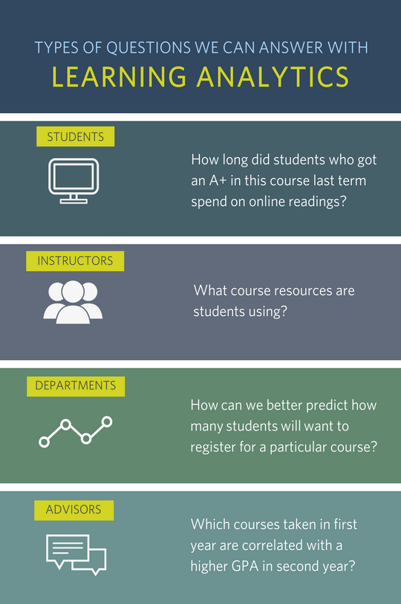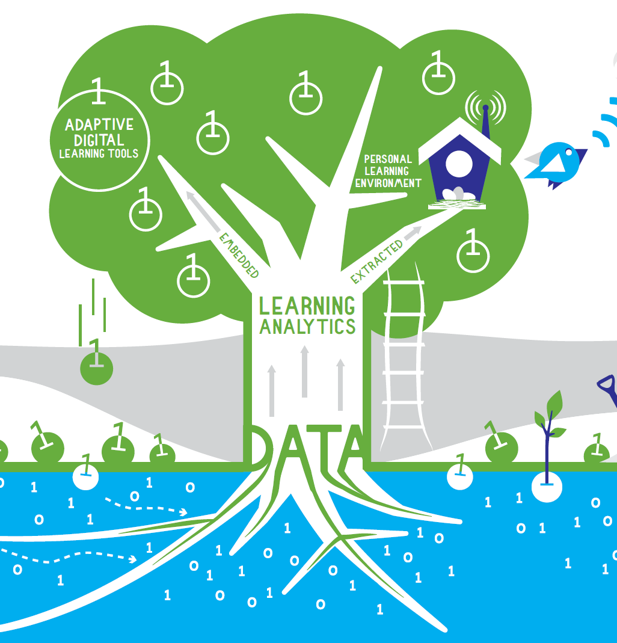What is Learning Analytics? Unfortunately, this term is now increasingly used as a commonly used term. Learning analytics (LA) is about collecting data during the student's study trajectory. It's much more than just recording a grade at the end of a process. During the entire process, data points are collected and by analyzing these, an image is created of how the student performs and where strengths and weaknesses lie. This gives students a better insight into his/her own study trajectory and possible interventions in specific development areas.
Learning analytics is, when used correctly, an important tool within the educational field. There is now plenty of research into the impact and usability of Learning Analytics in education. However, at the moment there is little practical experience with LA in the Netherlands. It is therefore also difficult to form a picture of what exactly can be done with LA and above all what its influence is on the student's learning process.

When it comes to learning analytics, there is no magic system, with data automatically appearing in a dashboard. It is often thought at LA that if you just measure "something", "something" will come out with which you can continue.
However, a good implementation of LA starts with the basics and that is the curriculum and the content that students use. These factors largely determine where and how you can place the data points. So if you want to be able to collect valuable data and make good analyzes, you first have to look closely at the education provided.
More than a dashboard
Generating insight is often what the focus is on at LA, because it is relatively one of the simplest things to realize. Identifying data sources, connecting them with each other and generating dashboards from them is primarily a technical matter in which a product can be presented "quickly".
However, there is less attention for the educational side of LA. Often the underlying and in-depth questions are hardly ever asked. This should include:
- What does the dashboard actually mean for the student?
- Is the student sufficiently capable of correctly interpreting the insights for himself?
- What does the obtained insight do with the student's motivation, attitude to work and self-confidence?
- Which interventions or actions are offered based on the insight?
- Which results are noticeable, e.g. these interventions?

Proof of Concept
To be able to experiment with Learning Analytics within the UT, a Proof of Concept is currently being developed. Setting up an experiment looks at the possibilities of Learning Analytics and the technical preconditions that are required for this. In this stage of experimenting on learning analytics (LA) the focus will initially be on the key questions:
- What insights can we use for the student? While providing LA within the learning process;
- What kind of support/interventions can we offer the student with regard to the insights obtained;
- How do we ensure an AVG proof LA system;
- Which data sources can be used for LA and how can we record and analyze this data;
- What technical preconditions are needed for LA within the UT.






